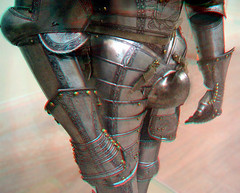I never hated Enterprise Software until I had to work with it.
I have always been in the open-source world – admittedly spending far less time contributing than being paid to build closed-source products on open-source foundations. Still I had a vague, theoretical distrust of enterprise software.
Now, for the first time, I get it. I’m working on a tiny project which is entirely subject to the half-baked API of an enterprise behemoth. On every side I’m faced by problems caused not by my own work or by logical limitations, but by the past decisions of a nameless somebody. Problems I cannot fix, no matter how hard I work or how cunningly I plan. Because here you don’t change anything by thinking. You change it by siting in meetings, persuading people, and perhaps having your boss write a five-figure cheque.
And so, I feel an overwhelming sense of powerlessness.
These days I am not used to feeling powerless. It reminds me of home and school – of the last time I felt continuously, cripplingly, at the mercy of arbitrary rules. That my life since then has been relatively independent is of course the result of immense privilege. It’s also because, hating being constrained, I’ve cashed in some of that privilege running away from authority.
Now, with this sense of powerlessness in my head, I look at free software in a different light. I had seen it either in political or in practical terms – as the Right Way and the Best Way.
I had overlooked the psychological aspect. I had not really felt the frustratation of being trapped inside somebody else’s conceptual world, and the compulsion to break free.
The children of the revolution, I suppose, never quite understand the horrors of the ancien regime. So maybe I should appreciate my current situation as a teaching moment, a picture of how I Do Not want to live. For sure, it has motivated me to contribute more actively to free software.
Mostly, though, I just want it to be over.
